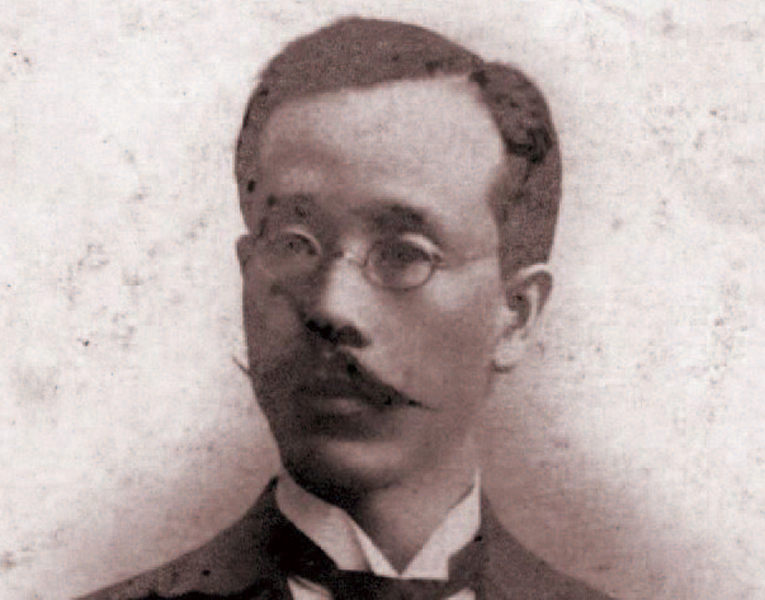A founder of Waseda’s humanities and a fighter for social justice, Hajime Onishi
Thu, Oct 29, 2015-
Tags
Waseda University Archives
Assistant Takashi Hiroki
 In September 1891, Waseda University’s predecessor, Tokyo College, recruited a new instructor and specialist in philosophy. His name was Hajime Onishi. Onishi was still a graduate student at Imperial University (now the University of Tokyo) but was invited to Waseda by author, critic, and professor, Tsubouchi Shoyo.
In September 1891, Waseda University’s predecessor, Tokyo College, recruited a new instructor and specialist in philosophy. His name was Hajime Onishi. Onishi was still a graduate student at Imperial University (now the University of Tokyo) but was invited to Waseda by author, critic, and professor, Tsubouchi Shoyo.
Onishi was born in the Nishida castle town of Okayama in 1864. Onishi had a close relationship with Christianity from a young age and while studying at what is now Doshisha University, was baptized by Japanese missionary, educator, and Doshisha founder Niijima Jo. Onishi later enrolled in a graduate program at the University of Tokyo where he studied logic.
Tokyo College, which had just established its humanities and social sciences department the year before, made Onishi responsible for classes in philosophy, logic, psychology, and aesthetics. Together with Tsubouchi Shoyo, Onishi helped build the foundation of Waseda’s humanities and social sciences. According to the November 1910 issue of Waseda Bungaku, Onishi “was well-reasoned and logical, but had a passion that inspired students.” Examples of notable students that attended Onishi’s classes include educator Umaji Kaneko, playwright and author Hogetsu Shimamura, critic and thinker Ryosen Tsunashima, historian Kanichi Asakawa, and Japanese studies scholar Ryusaku Tsunoda.
.jpg)
A photograph of a 1896 graduation cermony for the humanities department. Onishi is pictured in the front row, second from the right and Waseda founder Okuma Shigenobu is in the center.
Onishi was dedicated to educating future generations, but was also passionately devoted to his own academic and social endeavors. One example is his role in the “Kanzo Uchimura Incident,” which revolved around an instructor at the First Higher School of Japan and his subsequent termination for not using the “most respectful language possible” when referring to the emperor in his course syllabus. This incident led to a public dispute between education and religion. Onishi made a firm stance against nationalism and challenged Imperial University professor and philosopher Inoue Tetsujiro, who condemned Christianity as incompatible with Japanese culture and considered its followers “inherently disloyal” to Japan.
Onishi’s career as an instructor came to an end when in 1898, the Ministry of Education ordered him to study abroad in Europe. Onishi spent most of his eight years at Waseda engaged in research and education. In Europe, Onishi was so immersed in his research that he would forget to rest and eat. He became ill and after returning to Japan, passed away in November 1900 at the young age of 36. He had been offered a position as Dean of Kyoto Imperial University’s new humanities department, but did not have the chance to take up the position.
After his death, a seven volume compilation of Onishi’s writings was published. The editor of this compilation was Umaji Kaneko, one of Onishi’s brightest pupils that later went on to become a prominent Waseda educator. Many documents related to Onishi are currently stored in the Waseda University Library.
Original article from Waseda Weekly
- Links













